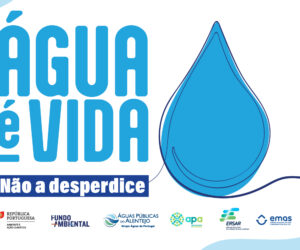Opinion (Rogério COPETO / Official GNR): REPORT to the procedures UNFAIR.
According to the article from Journal of News 14 the September "Complaints concerning abusive practice doubled", verifying the reading of it, tabled 18 complaints in the academic year 2016/2017, taking in the previous school year were presented 10. And being mathematics an exact science, It is not correct to say that 18 is twice 10, even when it is intended to point out that complaints of abusive practice are increasing.
Lieutenant Colonel of the GNR
Master in Law and Security and Homeland Security Auditor
Head of the Education Division / Command Doctrine and Training
In that article states that "Last school year, the General Directorate of Higher Education (DGES) He received via email and telephone line, created 2015, 18 communications relating to abusive hazing", and this "telephone line" received 80 complaints relating to the school year 2014/2015, as we had occasion to point out here in LN, Article September 2015, entitled "violent practice is a crime", because of an article published in JN on 24 September 2015 with the title "Freshman in the hospital after practice with alcohol on the beach", denouncing one practice that was to bury the young in the sand as they were given alcohol.
The aforementioned "telephone line", is not only a phone number (213 126 111), but also an email address (praxesabusivas@mec.gov.pt), and it was created by the Ministry of Education and Science (MEC), following the tragic events in the Mill Beach, in Sesimbra municipality in December 2013 and killed 6 young, along with a campaign, launched in 2014, entitled "Zero tolerance for violent and abusive practice", to combat "violent and abusive hazing", which it was recommended to higher education institutions, "the inclusion in the respective disciplinary regulations of standards that clearly define that the student has a duty not to perform any act of violence or physical or psychological coercion on others, particularly in the context of academic praxis, and that such a practice, by act or omission, should be considered disciplinary offense“.
this campaign, we assume still in force, will not have the desired results, because it appears that the number of complaints continues to be very low, having in the past two school years been received 10 and 18 complaints, respectively, when the academic year 2014/2015 They had been received 80 complaints, so it can be concluded, that in the last two academic years, They were presented 18 complaints, representing a very small number of complaints, because you want all abusive practices followed are reported.
Already at the time to refer to the failure of the campaign "Zero tolerance for violent and abusive practice"Will eventually have contributed, transmitting the idea that "...perform any act of violence or physical coercion or psychological ... should be considered disciplinary offense ", knowing that although one considers burying people in the sand is usual, It is also synonymous with torture, much more than "violent and abusive practice", It consists of a conduit, which can be considered a crime, can not academic traditions, that they are lacking in any higher education institution, substantiate the commission of a crime of bodily harm, threats, coercion or injury.
However it should be noted that all listed crimes are parastatals, requiring the victim to submit the complaint respective, and the possible consent of the victim participation in these activities, express or presumed, that works as a cause of exclusion of illegality of any crime, and for the author to be punished must be shown that it was committed with intent (fraud) or at least the author knowing the circumstances of his behavior were dangerous, yet he settled for the eventual results (dolo eventual).
Regardless of the aforementioned, the crimes they are public or semi-public must be reported to the authorities for them who have knowledge, because it is after the Public Prosecutor to determine initiation crime investigation or archive participation by lack of desire on the part of the victim to make a complaint.
To reverse this situation, our opinion, that the campaign should be noted that the "violent and abusive hazing"May possibly be the commission of a crime provided for and punishable under the Penal Code, in which case be communicated to the prosecutor or law enforcement authorities, or preferring to use the internet by accessing the portal Complaint electronics, and attend the facts.
So, We consider that when practiced "violent and abusive hazing"Crimes may be committed, and so it has to be treated as such, in accordance with the provisions of criminal law, and not in any rules, as a disciplinary offense, with the result that none of these behaviors is really punished, causing the perpetrators a sense of impunity.
Also to strengthen the fight against this phenomenon of "violent and abusive hazing", we had to opportunity 2015, suggest extending the "Safe School Program" (PES), the higher education institutions, with the same objectives that exist for primary schools and secondary, which among other, aims to prevent and combat crimes inside and outside of schools, with this suggestion been reported by journalist Joana Costa, the Sun newspaper, in his article entitled "Praxes without control", publicado no dia 7 October 2015, which also echoed the words of researchers, responsible for higher education, the President of the Council of Rectors and the President of the Portuguese Association of Private Higher Education, and they were all unanimous in condemning the violent hazing.
Also in our article entitled "Back to school, returns to practice" from 7 September last year, We reiterate this suggestion, as we echo the open letter from the Minister of Science and Higher Education, addressed to all higher education institutions, where it is stated that "You do not want higher education institutions recognize the usual commissions and other bodies that regulate academic hazing " criticizing "The 'abuse and humiliation' associated with academic traditions" and defending "That must be made of reception programs for new students as culture and science to serve as 'alternative' to the usual rites at the beginning of the school year".
So it was no surprise that in our article 22 March this year, with the title "To 25 Safe School years entered the university or not", in addition to remember that PES complete this school year 25 years old, We refer also to the GNR through the program "University in Safety", extended for the first time the PES goals, the higher education institutions, with the main objective to guarantee a closer security of the entire university community, including the surrounding areas of higher education institutions.
So, knowing that this school year for the first time the GNR will be present in all higher education institutions of their responsibility, under the program "University in Safety", we believe this new school year starts smoothly, because with regard to security is the duty of GNR contribute to the new school year starts smoothly, as always happens in schools of primary and secondary, expecting that this year we can say the same to higher education institutions, and avoid repeating the best practices followed news that consist of university students bury in the sand as long as they are administered alcohol or other of the same kind.

























